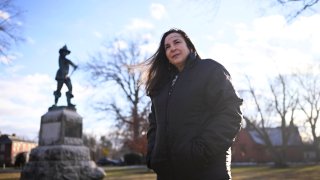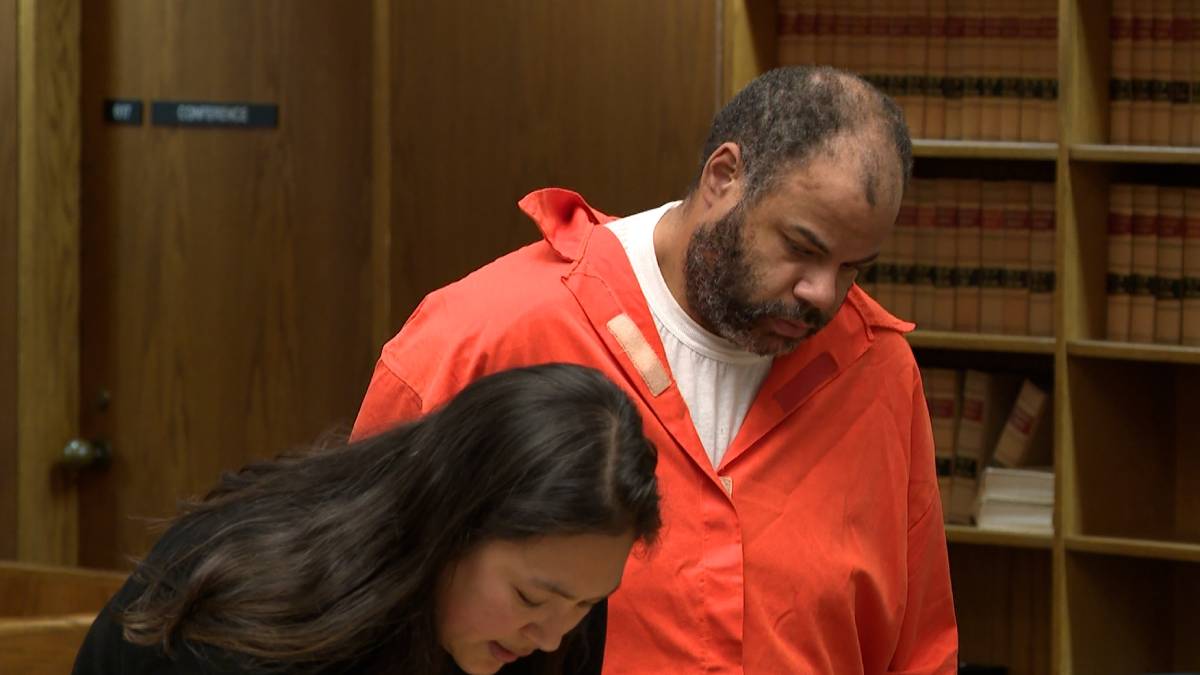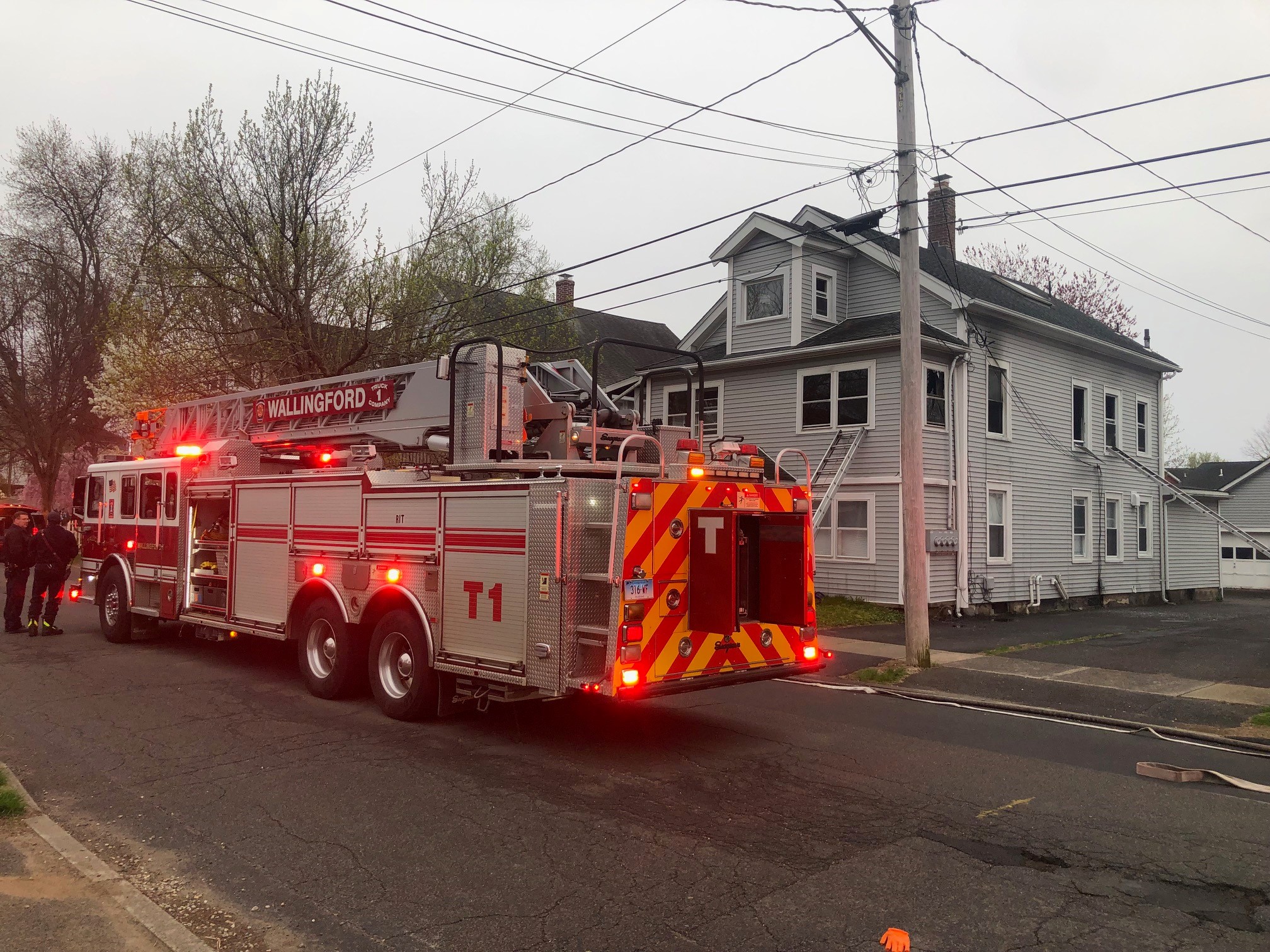
Decades before the infamous Salem witch trials in Massachusetts, Alse Young was killed at the gallows in Connecticut, becoming the first person on record to be executed in the American colonies for witchcraft.
The Windsor town clerk registered the death on May 26, 1647, in a diary entry that read: “Alse Young was hanged.” Young was the first of nine women and two men executed by the colony of Connecticut for witchcraft over 15 years, a period during which more than 40 people faced trial for having ties to Satan.
Now, more than 375 years later, amateur historians, researchers and descendants of the accused witches and their accusers hope Connecticut lawmakers will finally offer posthumous exonerations.
While such requests aren’t new, they have become louder as many genealogy buffs discover they have distant relatives involved in the lesser-known Connecticut witch trials.
Get Connecticut local news, weather forecasts and entertainment stories to your inbox. Sign up for NBC Connecticut newsletters.
“They’re talking about how this has followed their families from generation to generation and that they would love for someone just to say, ‘Hey, this was wrong,’” said Connecticut state Rep. Jane Garibay, who proposed an exoneration resolution after receiving letters from eighth- and ninth-generation relatives of accused witches. “And to me, that’s an easy thing to do if it gives people peace.”
Other states and countries have attempted to atone for a history of persecuting people as witches. Last year, Scotland’s prime minister issued a formal apology to the estimated 4,000 Scots, mostly women, who were accused of witchcraft up until 1736. Of the 4,000, about 2,500 were killed. A Scottish member of parliament last year called for posthumously pardoning them.
In 2022, Massachusetts lawmakers formally exonerated Elizabeth Johnson Jr., who was convicted of witchcraft in 1693 and sentenced to death at the height of the Salem Witch Trials. Johnson is believed to be the last accused Salem witch to have her conviction set aside by legislators.
Local
In 2006, former Virginia Gov. Tim Kaine gave an informal pardon to Grace Sherwood, a widowed midwife who was blamed by neighbors for ruining crops, killing livestock and creating storms and subsequently accused of being a witch. With her hands bound, Sherwood was thrown into a river to see if she floated, which was purported to indicate guilt. She managed to set herself free and spent seven years in prison.
Connecticut’s witch trials were held in the mid-to-late 1600s. In each of the New England colonies, witchcraft was considered a capital offense. According to the earliest laws in the colony of Connecticut, “any man or women (to) bee a Witch, that is, hath or consulteth with a familiar spirit, they shall bee put to death.”
Many historians believe fear and anxiety among the religiously strict English settlers led to the witch trials, noting how life was very difficult, given epidemics, floods, cold winters and starvation. Often, accusations started as a quarrel, or the death of a child or a cow, or even butter that couldn’t be churned.
Many of the people executed as witches were poor, single mothers.
Such was the case of Mary Johnson, a servant in Wethersfield, Connecticut, who was accused of “familiarity with the Devil.”
For years, she was tortured by a local minister who whipped her until she finally confessed to being a witch and admitted to “uncleanness with men,” according to Bridgeport author Andy Piascik, who wrote an article for Connecticut Humanities, an independent, nonprofit affiliate of the National Endowment for the Humanities. Johnson is believed to have been hanged after giving birth to the child of a man she was not married to.
“It’s important to right the wrongs of the past so we learn from them and move on and not repeat those mistakes,” said Joshua Hutchinson, of Prescott Valley, Arizona, who traced his ancestry to accused witches in Salem and is the host of the “Thou Shalt Not Suffer: The Witch Trial Podcast.”
He noted that even in recent decades people have been killed in multiple countries because they were suspected of being witches or sorcerers.
Beth Caruso, an author, co-founded the CT Witch Trial Exoneration Project in 2005 to clear the names of the accused. The group is encouraging people who discovered through genealogy research that they are descendants of victims to contact Connecticut state legislators and urge them to support exoneration legislation.
Connecticut state Sen. Saud Anwar, who also proposed an exoneration bill, said he expects some people might laugh or scoff at the idea of the Legislature taking time to clear the records of accused witches. But he said the descendants are feeling some “serious stuff,” including a constituent who requested the resolution.
“His wish was that if there was a way to give some kind of a closure to the families,” Anwar said, “that would be one way for him to be able to say that he has done his share, even though his ancestors may have not done the right thing.”



